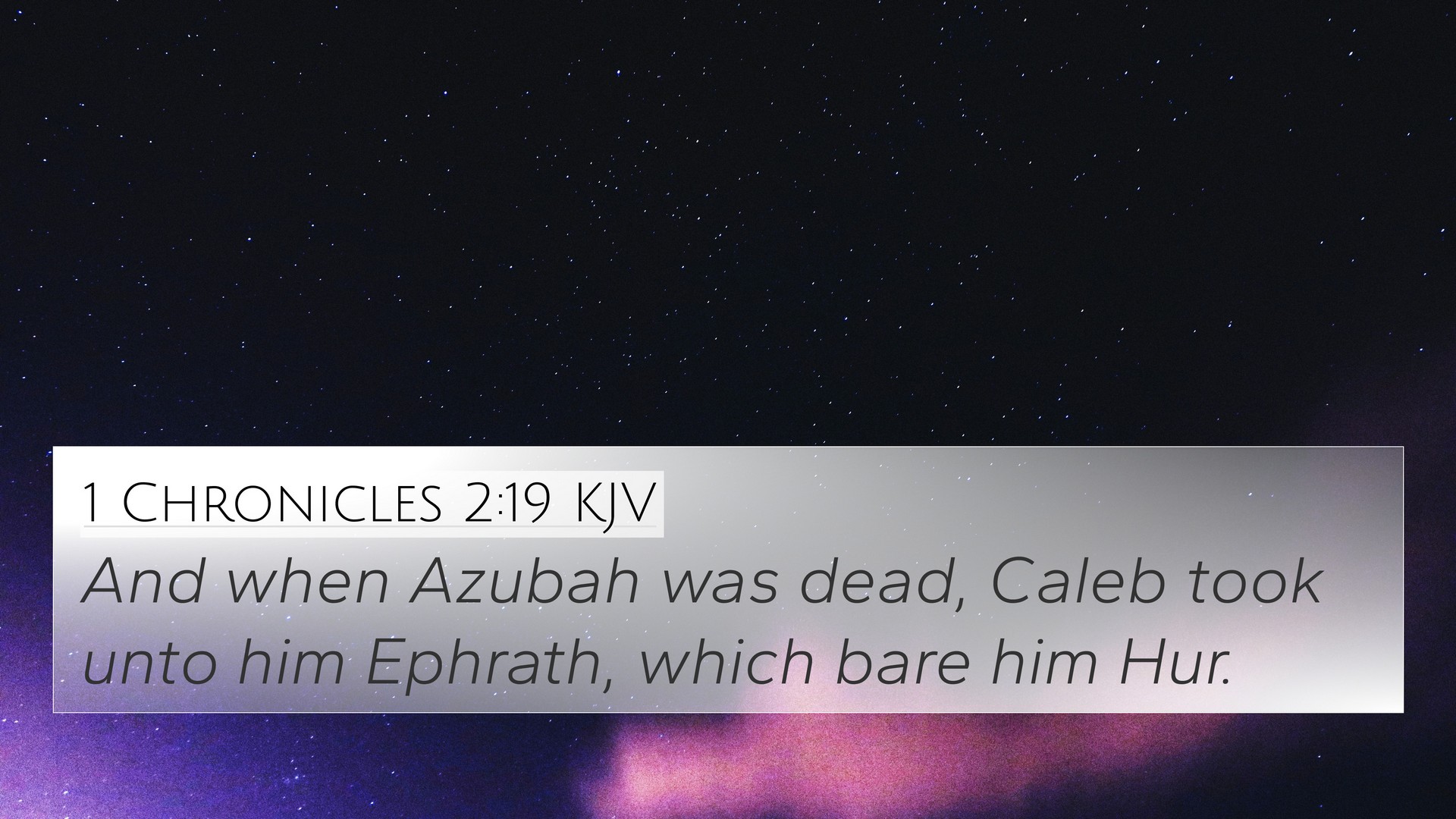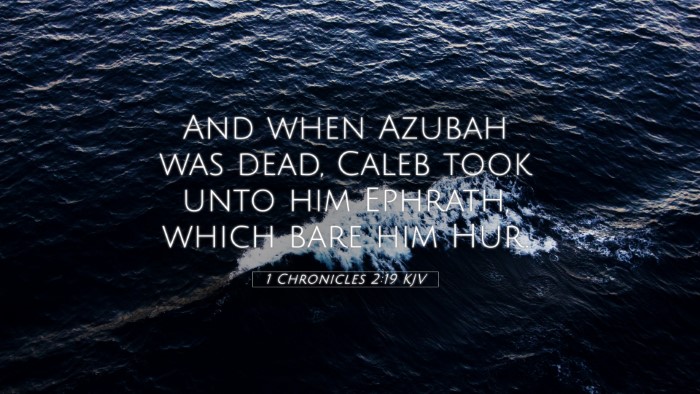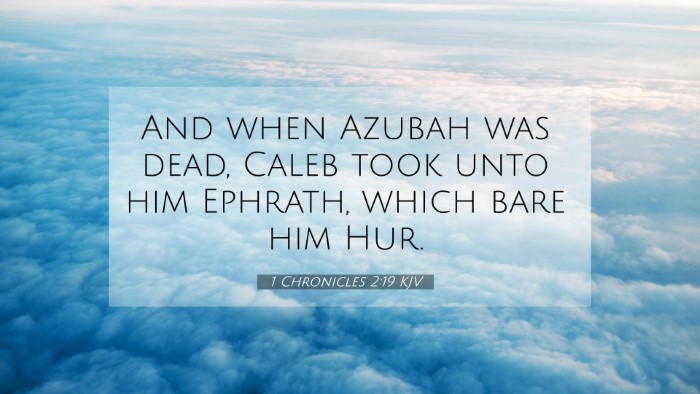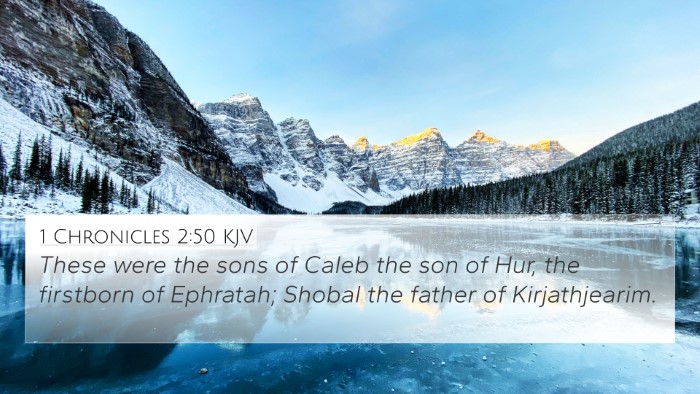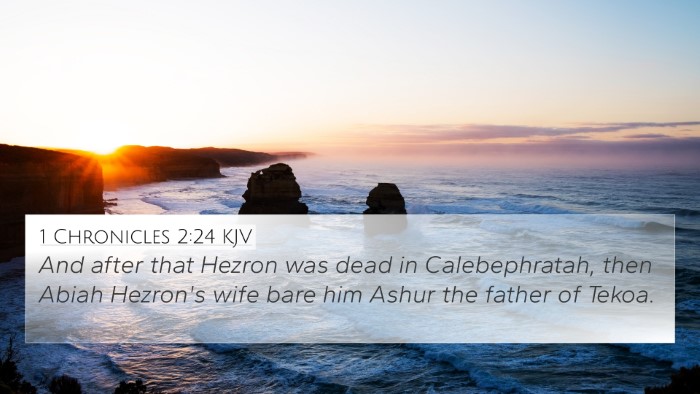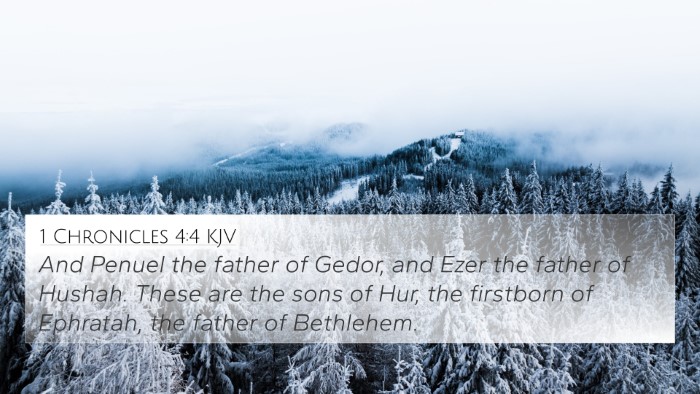Understanding 1 Chronicles 2:19
Bible Verse: 1 Chronicles 2:19 - "And Azubah died, and Caleb took unto him Ephrath, which bare him Hur."
Contextual Background
This verse is situated within a genealogical record that traces the lineage of the tribe of Judah. The genealogies in 1 Chronicles serve to establish the heritage and legacy of the Israelite people, emphasizing the importance of family and lineage in biblical history.
Verse Analysis
This particular verse mentions Caleb, a notable figure in Israelite history known for his faith and courage. His marriage to Ephrath, after the death of Azubah, indicates both a continuation of his lineage and attests to his significance within the tribe of Judah.
Insights from Commentaries
-
Matthew Henry: Henry comments on Caleb's nature, highlighting his bravery and faith, reflecting on how this passage conveys the importance of continuing one’s lineage and maintaining faith within familial ties.
-
Albert Barnes: Barnes points out the significance of Hur, Caleb's son with Ephrath, suggesting that Hur played a crucial role in Israel’s history as an ancestor of key figures, indicating that God's plans extend through faithful lineages.
-
Adam Clarke: Clarke discusses the implications of marriage in ancient Israel and how it ties into the broader narrative of divine blessing and covenant affirmations. He notes the importance of children within these families to fulfill God's promises to Abraham.
Thematic Connections
The themes presented in this verse connect to broader biblical narratives about fidelity, family, and the unfolding of God’s promise to His people:
- Continuity of Lineage: This verse emphasizes the theme of lineage as crucial for God's covenant people.
- God's Faithfulness: The mention of Caleb’s actions reflects God’s faithfulness to his promises throughout generations, consistent with the messages in Genesis 12:2-3.
- Roles of Women: Ephrath's mention underscores the underlying importance of women's roles in biblical narratives and Covenant continuation.
Bible Cross-References
The verse interconnects deeply with various other Scriptures that explore similar themes, providing numerous Bible verse cross-references:
- Numbers 13:30: Caleb's faith and insistence on entering the Promised Land.
- Joshua 14:6-15: Caleb claims his inheritance based on his faithfulness.
- 1 Chronicles 4:4: Connection to Hur regarding his family lineage.
- Genesis 49:10: Reference to the scepter coming from Judah, reflecting Caleb’s prominent heritage.
- Matthew 1:2-3: The genealogy citing Judah's descendants in the New Testament.
- Lamentations 3:22-23: Reflection on God's continual faithfulness and compassion.
- Hebrews 11:6: Faith, which was exemplified by figures like Caleb, is crucial for pleasing God.
Comparative Analysis with Related Bible Verses
To further understand this verse, it can be beneficial to explore its relationships with other texts:
- Deuteronomy 1:36: Highlights Caleb's faithful character.
- 1 Corinthians 10:11: The significance of the Old Testament events for New Testament teachings, relating to faithfulness.
Tools for Bible Cross-Referencing
To deepen your study, consider using these tools for Bible cross-referencing:
- Bible concordance
- Bible cross-reference guide
- Online Bible tools and software
- Commentaries and Biblical dictionaries
Conclusion
In summary, 1 Chronicles 2:19 reveals not just genealogical information but also speaks volumes about faith, continuity, and the overarching divine plan through lineages. By engaging with various commentaries and related texts, one will appreciate the richness of these Biblical connections and their significance within the Christian faith.
